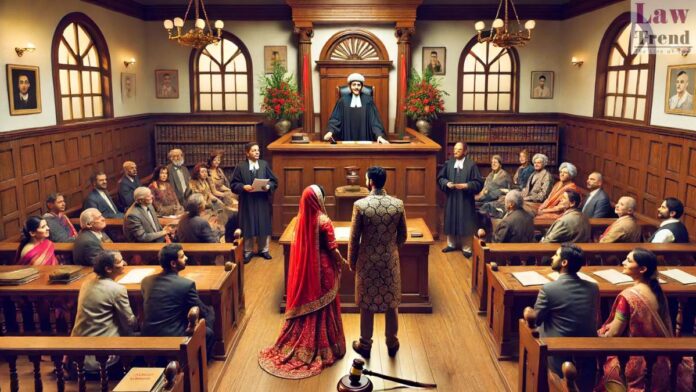In a significant judgment, the Madurai Bench of the Madras High Court, comprising Justice RMT. Teekaa Raman and Justice N. Senthilkumar, ruled that a marriage between a Hindu and a non-Hindu cannot be legally recognized under the Hindu Marriage Act, 1955, and must be registered under the Special Marriage Act, 1954 to attain legal validity.
To Read More Please Subscribe to VIP Membership for Unlimited Access to All the Articles, Download Available Copies of Judgments/Order, Acess to Central/State Bare Acts, Advertisement Free Content, Access to More than 4000 Legal Drafts( Readymade Editable Formats of Suits, Petitions, Writs, Legal Notices, Divorce Petitions, 138 Notices, Bail Applications etc.) in Hindi and English.




